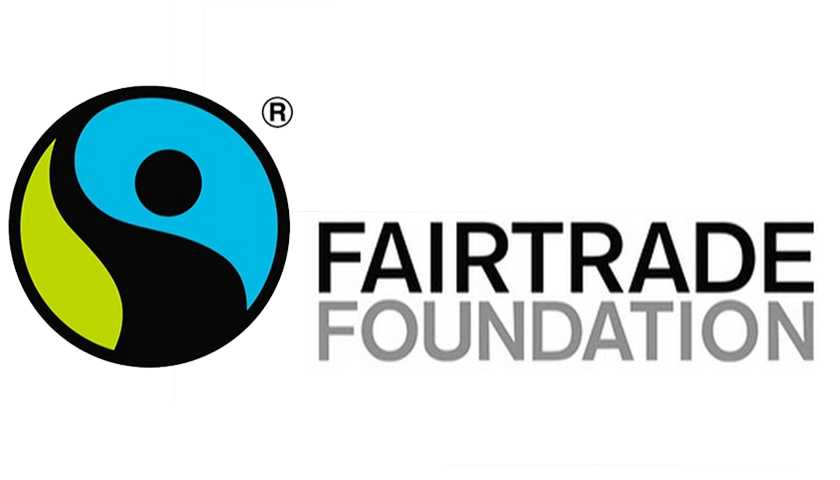LONDON, UK – According to the latest GlobeScan 2021 data, 65% of people in the UK say they choose Fairtrade, demonstrating continued consumer commitment to products that are ethically and sustainably produced, says Fairtrade Foundation, as its annual Fairtrade Fortnight campaign begins.
Demand is also translating into sales, with the Co-op’s ‘Ethical Markets Report 2021’ noting that the UK ‘green pound’ has reached record levels, breaking through the £100 bn mark for the first time.
It found, for instance, that Fairtrade sales increased by 14% in 2020. The report has tracked ethical expenditure year by year over the past two decades. Fairtrade’s own figures set out in its latest annual report show sales of Fairtrade cocoa grew by 3% and were matched by 3% growth in bananas in 2020.
Major brands and retailers continue to back Fairtrade in the UK despite the impacts of Brexit and ongoing pandemic-related challenges, making impressive commitments to Fairtrade and the farmers and workers in their supply chains.
In the retail space, fresh produce has seen significant growth – with increased banana commitments and new product lines including Fairtrade certified grapes, tomatoes, oranges from Co-op and Keelings launching their Fairtrade tomatoes on Ocado. In June alone, Sainsbury’s saw Nectar customers purchasing more than 7.7 million bunches of Fairtrade bananas over the month, having a huge impact on banana farmers.
M&S launched a new range of 100% Fairtrade jams through a major sugar commitment. Fairtrade’s wine category has seen significant growth in 2021, complemented by partnerships in origin to create further value for farmers and workers. And in cocoa, Greggs for example continue to rollout their 100% chocolate couverture conversion.
Producers have benefitted from the introduction of living income reference price for coffee farmers in Colombia, as well as a Fairtrade Base Wage for bananas in 2021, meaning wage increases of up to 15 percent for banana workers. Separately, banana productivity climate projects with retailers became an interesting focus for Fairtrade in collaboration with Co-op.
In 2021 Fairtrade completed successful programmes focused on alleviating the impact of COVID-19 and increasing resilience of farmers and workers: this included a flower programme in Kenya in partnership with FCDO and in collaboration with business partners such as MM Flowers, M&S, Tesco and Co-op; as well as a Ghana-based cocoa programme in partnership with FCDO and Mondelēz International.
Meanwhile shopping for everyday goods online will remain the new norm amid the pandemic. Digitalization makes it easier for shoppers to compare products and learn whether or not a company’s sourcing and manufacturing practices align with their values.
Amazon is making it easier than ever to shop Fairtrade, with Fairtrade badging on product pages and with Amazon’s own Climate Pledge Friendly, a dedicated programme to help customers discover products with sustainability certifications. We also see Fairtrade badging on Asda’s online shop and dedicated Fairtrade aisles on Co-op and Ocado’s online stores.
According to Fairtrade research, there is a clear desire among online shoppers to support brands that are not only taking care of their own teams and suppliers but are also contributing to making the world a better place.
A new partnership with B Lab will pursue collaborations around standards development and building network relationships.
The Fairtrade Foundation has seen a boom in demand for beauty products in 2021 and the charity believes that this growth has been partly bolstered by its Fairtrade Sourced Ingredient(FSI) certification model, giving companies greater flexibility to incorporate Fairtrade ingredients such as shea butter and olive oil into their product ranges.
Anna Barker, Head of Responsible Business at the Fairtrade Foundation, said: “After the disappointment of COP26, shoppers are increasingly looking to businesses to act on their ethical and social concerns.
“We’re pleased that we can now facilitate this through our FSI certification model and offer Fairtrade ingredients to some of the lesser known, more niche commodities such as shea butter, allowing us to support some of these key, but often unsupported, supply chains within the cosmetics industry. The pandemic combined with the increasing effect of climate change put pressure on low-income farmers around the world, and many fear being further marginalised by the economic downturn in months to come.”
As climate change continues to escalate, Fairtrade warns that consumers will increasingly demand companies focus more on sustainability. Shoppers are looking to brands to provide responsibly sourced and produced products they can feel good about purchasing. In 2021, 59% of Fairtrade shoppers said they were willing to pay more for a product to ensure farmers and workers were paid a fair price.2
Barker continued: “Shoppers are turning up the heat to avoid businesses which fail to act on ethical or social concerns. They are looking for opportunities to positively influence change for the good of our climate in as many ways as possible. Companies must support consumers in making ethical purchasing decisions.”
This comes as the Fairtrade Foundation launches its annual Fairtrade Fortnight campaign in the UK. Taking place between 21 February- 6 March. It marks the second year of Fairtrade’s climate campaign Choose the World You Want climate campaign, asking the British public to get behind Fairtrade so that farmers in low-income countries can benefit from fairer prices, trading practices and the resources needed to tackle climate change.
Fairtrade Fortnight 2022 builds on the Foundation’s ongoing climate justice campaign which has seen key business partners such as Co-op, John Lewis Partnership, Gregg’s, Matthew Algie, Ben & Jerry’s, Clipper, Tony’s, Cafedirect and Nespresso commit to taking climate action in their supply chains. The charity is inviting more companies to add their name to its climate pledge and join their Climate Network.


















